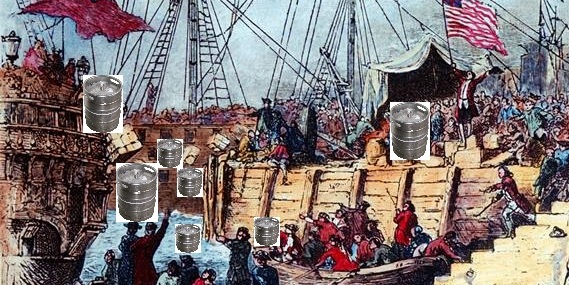The Massachusetts’ beer distribution scene is constantly in controversy. Whether it is allegations of pay to play arrangements to get beers into bars or unfair distribution contract arrangements that won’t let brewers out, someone is usually upset. The latter is in regard to the franchise law in the state that makes it difficult (and expensive) for a craft brewer to get out of a distribution contract.
Craft brewers in the state have tabled bills to amend this for the past few years, to no avail, as the distributors believed the compromises “went to far.” One maverick brewery decided to launch its own craft-beer-only distribution company that is not going to hold breweries to those punitive contracts.
Well, maybe a compromise is nearing this year after the Beer Distributors of Massachusetts Inc. filed a bill that they think will provide breweries more choice and flexibility in these relationships. We are not sure there are enough concessions here to achieve that compromise, but we will await the Massachusetts Guild’s reaction on that. In the mean time, here are the details.
What is the current law?
Under current Massachusetts law, if an emerging brewery wants to dissolve its relationship with a distributor after six months, it needs a super good reason and proof to back it, and then it must provide a ton of compensation to the (potentially negligent) distributor. In some cases, the law could result in a brewer having to pay its distributor several years worth of revenue to leave.
In total, the legal hoops/costs plus the financial compensation often equals a cost impossible for a craft brewer to meet, which leaves them stuck in a damaging business relationship with no practical option for recourse, argues the craft brewer.
The craft brewers are seeking a solution that would more closely mirror the same type of private business contracts common in other industries.
What is the distributor point of view?
Everything comes down to what the distributors view as fair compensation for the business they will be losing out on.
As William A. Kelley, president of the Beer Distributors of Massachusetts, believes that not receiving this compensation is an “unreasonable position.” He puts it like this:
“It would allow breweries accounting for up to 20 percent of a distributor’s established business to walk out for no reason. That approach would devastate Massachusetts’s independent distributors and place over 2,000 jobs — including many good-paying union jobs — at serious risk.”
What does the new bill do?
The “Act to Promote Economic Development and Market Access for Emerging Businesses,” sponsored by Representative John J. Mahoney (D-Worcester), would allow privately owned and operated breweries that manufacture less than 30,000 barrels of beer (about 413,000 cases) per year to refuse to sell beer to any of their distributors at any time, for no reason at all.
This proposal was deemed an equitable solution for both parties, from the group’s perspective because those “emerging breweries” that meet that 30,000 bbl and under definition would receive more freedom but still allow for compensation to the distributor. From the bill (the bolding is ours for added emphasis):
(1) No termination of the right to distribute shall be effective until the wholesaler being terminated has received both written notice and full compensation as specified in this section.
(2) Upon any termination of the right to distribute pursuant to this section, the wholesaler shall sell and the Emerging Brewery or the wholesaler newly assigned to distribute the brands being terminated shall repurchase the wholesaler’s inventory and sales and marketing materials.
The Emerging Brewery shall cause to be paid to the affected wholesaler, as full compensation for termination of the right to distribute the brands of an Emerging Brewery, an amount not less than the laid-in cost of the inventory plus the laid-in cost of the sales and marketing material plus the fair market value of the distribution rights for the brands which are being terminated by the Emerging Brewery.
Vague terms like “fair market value” are annoying to be sure. We can already foresee all of the unagreeing that will happen when two sides try to define it, but here is how it is explained in the bill.
“The price that the wholesaler’s business that is related to the terminated brands of the Emerging Brewery would sell for in an arms length transaction between a willing buyer and a willing seller as of the date the notice was received by the wholesaler being terminated.”
If the Emerging Brewery and the affected wholesaler cannot agree on the compensation due to the affected wholesaler, either the affected wholesaler or the Emerging Brewery may request that the amount of compensation be determined by final binding arbitration.






Leave a Reply
You must be logged in to post a comment.